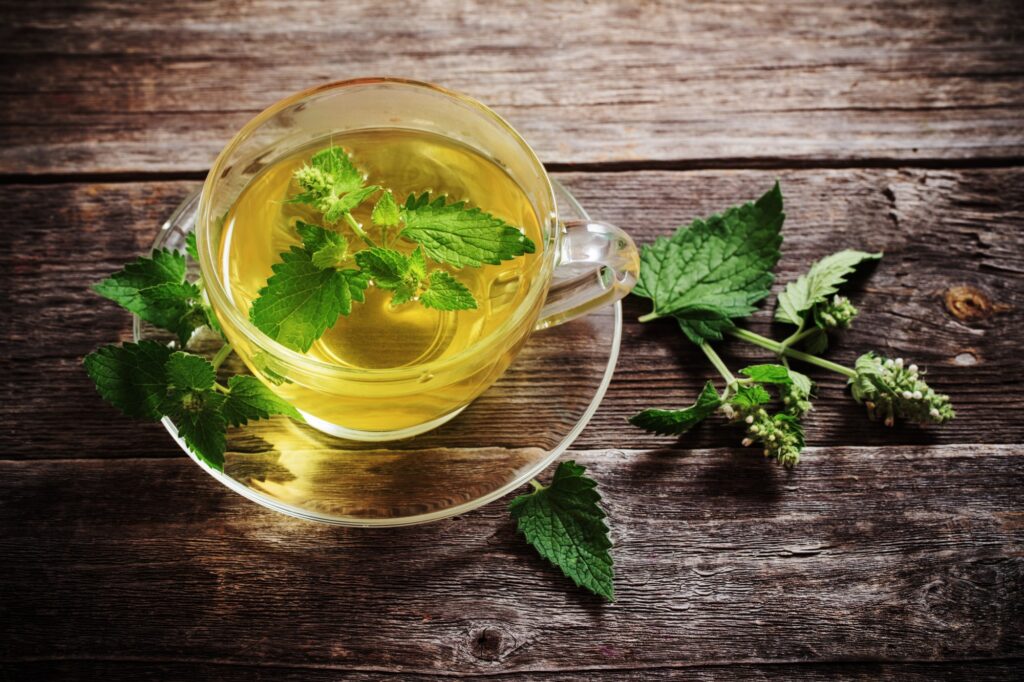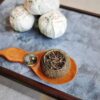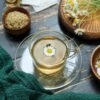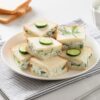
As the seasons change and the colder months approach, the chances of catching a pesky cold increase. While over-the-counter medications can provide relief, many individuals prefer to explore natural remedies to alleviate their symptoms. Lemon balm tea, a centuries-old herbal beverage, has garnered significant attention for its potential to combat colds and promote overall well-being.
Derived from the lemon balm plant (Melissa officinalis), this aromatic tea has been valued for its medicinal properties since ancient times. With its refreshing lemon-like aroma and mild, slightly minty flavor, lemon balm tea offers a soothing and enjoyable experience while potentially providing relief from cold symptoms.
Lemon balm tea and its health benefits
Lemon balm tea is more than just a comforting beverage; it is a treasure trove of potential health benefits. This versatile herb has been used traditionally to:
- Promote relaxation and reduce stress
- Support digestive health
- Alleviate menstrual cramps
- Improve sleep quality
- Enhance cognitive function and memory
Moreover, lemon balm tea is rich in antioxidants, including flavonoids and phenolic compounds, which help neutralize harmful free radicals and protect the body from oxidative stress. These antioxidant properties may contribute to the herb’s potential to boost the immune system and combat respiratory infections like the common cold.
Lemon balm tea for colds: How does it work?
When it comes to fighting colds, lemon balm tea may offer a multifaceted approach. Here’s how this herbal remedy is believed to work:
- Anti-inflammatory properties: Lemon balm contains compounds like rosmarinic acid and eugenol, which possess anti-inflammatory properties. These compounds may help reduce inflammation in the respiratory tract, alleviating symptoms like sore throat and nasal congestion.
- Antiviral effects: Some studies suggest that lemon balm may exhibit antiviral activities, potentially inhibiting the replication and spread of certain viruses responsible for causing colds. However, more research is needed to fully understand these antiviral effects.
- Immune system support: The antioxidants and other beneficial compounds found in lemon balm tea may help strengthen the immune system, enhancing the body’s ability to fight off viral infections and reduce the severity and duration of cold symptoms.
- Relaxation and stress relief: Colds can often be exacerbated by stress, which can weaken the immune system. The calming effects of lemon balm tea may help reduce stress and promote relaxation, indirectly supporting the body’s natural defenses against colds.
The science behind lemon balm tea’s effectiveness against colds
While anecdotal evidence and traditional use have long supported the use of lemon balm tea for cold relief, scientific research has also shed light on its potential effectiveness. Here are some key findings:
- In vitro studies: Several in vitro (laboratory) studies have demonstrated the antiviral and anti-inflammatory properties of lemon balm extract against various viruses, including those responsible for causing colds and respiratory infections.
- Animal studies: Researchers have observed positive effects of lemon balm extract on respiratory function and immune response in animal models, suggesting its potential to alleviate cold symptoms.
- Human clinical trials: While human studies on lemon balm tea specifically for colds are limited, some clinical trials have investigated its effects on respiratory health and immune function. The results have been promising, indicating potential benefits for reducing cold symptoms and enhancing immune response.
It’s important to note that more robust clinical trials are still needed to fully understand the efficacy and mechanisms of action of lemon balm tea in treating colds. However, the existing research provides a solid foundation for exploring its therapeutic potential.
Lemon balm tea recipes for cold relief
Preparing a soothing cup of lemon balm tea is a simple and enjoyable ritual that can be customized to suit your taste preferences. Here are a few delicious recipes to try:
Classic Lemon Balm Tea
Ingredients:
- 2 teaspoons dried lemon balm leaves (or 4-6 fresh lemon balm leaves)
- 1 cup boiling water
- Honey or lemon slices (optional)
Instructions:
- Place the lemon balm leaves in a tea infuser or directly into a teapot or mug.
- Pour the boiling water over the leaves and let it steep for 5-7 minutes.
- Remove the infuser or strain the tea to remove the leaves.
- Add honey or lemon slices to taste, if desired.
- Enjoy your warm, soothing cup of lemon balm tea.
Lemon Balm and Honey Tea
Ingredients:
- 2 teaspoons dried lemon balm leaves
- 1 cup boiling water
- 1-2 tablespoons honey
- Lemon slices (optional)
Instructions:
- Steep the lemon balm leaves in boiling water for 5-7 minutes.
- Remove the infuser or strain the tea.
- Stir in the honey until dissolved.
- Garnish with lemon slices, if desired.
- Sip and savor the sweetened lemon balm tea.
Lemon Balm and Ginger Tea
Ingredients:
- 2 teaspoons dried lemon balm leaves
- 1 inch fresh ginger, sliced
- 1 cup boiling water
- Honey or lemon slices (optional)
Instructions:
- Place the lemon balm leaves and ginger slices in a tea infuser or directly into a teapot or mug.
- Pour the boiling water over the ingredients and let it steep for 7-10 minutes.
- Remove the infuser or strain the tea.
- Add honey or lemon slices to taste, if desired.
- Enjoy the invigorating blend of lemon balm and ginger.
These recipes are just a starting point; feel free to experiment with different combinations of herbs, spices, and sweeteners to create your own personalized lemon balm tea blend.
Preparing and consuming lemon balm tea
To ensure the best possible experience and maximize the potential benefits of lemon balm tea, it’s essential to follow proper preparation and consumption guidelines. Here are some tips:
- Use fresh or high-quality dried lemon balm leaves: The quality of the lemon balm leaves can significantly impact the flavor and potency of the tea. Choose fresh, organically grown leaves or high-quality dried leaves from a reputable source.
- Follow the recommended steeping time: Steeping the lemon balm leaves for the appropriate amount of time (usually 5-7 minutes) allows the beneficial compounds to be properly extracted without becoming bitter.
- Drink the tea while it’s warm: Lemon balm tea is best consumed warm or hot, as the heat can help release the aromatic compounds and enhance the soothing experience.
- Sip slowly and mindfully: Take the time to savor the aroma and flavor of the tea. Sipping slowly and mindfully can promote relaxation and potentially enhance the therapeutic effects.
- Consider drinking lemon balm tea regularly: For maximum benefits, it’s recommended to incorporate lemon balm tea into your daily routine, especially during cold and flu season or when experiencing cold symptoms.
Remember, while lemon balm tea is generally considered safe, it’s always a good idea to consult with a healthcare professional, especially if you have any underlying medical conditions or are taking medications.
Lemon balm tea vs. other natural remedies for colds
While lemon balm tea is a popular natural remedy for colds, it’s not the only option available. Here’s how it compares to some other natural remedies:
- Honey: Honey has long been used as a natural cough suppressant and throat soother. It can be combined with lemon balm tea or consumed separately.
- Ginger: Like lemon balm, ginger has anti-inflammatory and immune-boosting properties. It can be added to lemon balm tea or consumed as ginger tea.
- Elderberry: Elderberry is rich in antioxidants and has been shown to potentially reduce the duration and severity of cold symptoms. It can be taken as a supplement or in the form of elderberry syrup.
- Echinacea: This herb is believed to stimulate the immune system and may help reduce the risk of catching a cold or shorten its duration. It’s available in various forms, including teas, supplements, and tinctures.
- Vitamin C: While not a herbal remedy, vitamin C is a powerful antioxidant that supports immune function and may help alleviate cold symptoms. It can be obtained through citrus fruits, supplements, or vitamin C-rich teas.
While each of these natural remedies has its own potential benefits, combining them or alternating between them can provide a comprehensive approach to cold relief. However, it’s important to consult with a healthcare professional before trying any new natural remedies, especially if you have underlying health conditions or are taking medications.
Lemon balm tea precautions and potential side effects
Lemon balm tea is generally considered safe for most people when consumed in moderate amounts. However, as with any herbal remedy, it’s important to be aware of potential precautions and side effects:
- Interactions with medications: Lemon balm may interact with certain medications, such as sedatives, thyroid medications, and antivirals. If you are taking any medications, it’s crucial to consult with your healthcare provider before consuming lemon balm tea.
- Pregnancy and breastfeeding: There is limited research on the safety of lemon balm tea during pregnancy and breastfeeding. It’s generally recommended to avoid or limit its use during these times, unless advised otherwise by a healthcare professional.
- Allergic reactions: While rare, some individuals may experience allergic reactions to lemon balm, such as skin rashes or respiratory issues. If you experience any adverse reactions, discontinue use and seek medical attention.
- Sedative effects: Lemon balm has mild sedative properties, which can be beneficial for promoting relaxation but may cause drowsiness in some individuals. It’s best to avoid operating heavy machinery or engaging in activities that require alertness after consuming lemon balm tea.
- Overconsumption: While lemon balm tea is generally safe in moderate amounts, excessive consumption may lead to side effects such as nausea, vomiting, or abdominal discomfort.
It’s always advisable to start with small amounts of lemon balm tea and gradually increase your intake if tolerated well. If you have any concerns or experience any adverse effects, consult with a healthcare professional immediately.
Incorporating lemon balm tea into your cold-fighting routine
As the cold season approaches, arming yourself with natural remedies like lemon balm tea can be a powerful addition to your cold-fighting arsenal. With its potential anti-inflammatory, antiviral, and immune-boosting properties, this soothing herbal tea may help alleviate cold symptoms and support your body’s natural defenses.
By incorporating lemon balm tea into your daily routine, you can enjoy its refreshing flavor while potentially benefiting from its therapeutic effects. Whether you sip it on its own or combine it with other natural remedies like honey, ginger, or elderberry, lemon balm tea offers a safe and enjoyable way to support your overall well-being.
While more research is still needed to fully understand the mechanisms behind lemon balm tea’s effectiveness against colds, the existing evidence and traditional use make it a compelling option worth exploring. So, why not brew a warm cup of lemon balm tea and embark on a journey towards natural cold relief and overall wellness?






